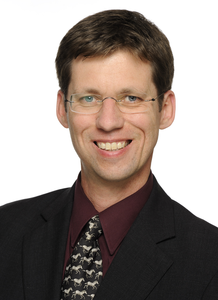The Institute for Advanced Sustainability Studies appoints Max Planck researcher Mark Lawrence as third scientific director
The Institute for Advanced Sustainability Studies appoints Max Planck researcher Mark Lawrence as third scientific director
Dr. Mark Lawrence, who has been working at the Max Planck Institute for Chemistry in Mainz over the last 18 years will start on October 15, 2011 as a scientific director at the Institute for Advanced Sustainability Studies (IASS) in Potsdam. The 42 year old will head the new Institute together with the Executive Director Prof. Dr. Klaus Töpfer and the other scientific director, Nobel Laureate Prof. Dr. Carlo Rubbia.

In Potsdam Mark Lawrence will build up and lead the IASS research cluster Sustainable Interactions with the Atmosphere, which focuses on developing a sustainability-driven approach to managing human influence on the earth’s atmospheric composition. His research at the IASS will examine the relationship between air pollution and climate change in the age of urbanization, as well as the opportunities and risks presented by “climate engineering”, targeted intervention in the atmosphere’s chemical and physical processes as a means of reducing climate change.
Lawrence, a US citizen, earned his doctorate in 1996 in Earth and Atmospheric Sciences at the Georgia Institute of Technology in Atlanta, USA. Following a few years as a postdoctoral researcher, he led a BMBF-funded Junior Research Group at the Max Planck Institute for Chemistry in Mainz for five years. Since 2006 he has been a group leader for atmospheric modeling in the Atmospheric Chemistry Department led by Prof. Dr. Jos Lelieveld. In recent years he has also been active as a lecturer and visiting professor at the Johannes Gutenberg University in Mainz.
"I will certainly look back fondly at the research in Mainz," said Mark Lawrence. "I find it very positive that at the Max-Planck-Institute, one has the freedom to conduct curiosity-driven scientific research in an open and creative atmosphere of excellence.
At first Mark Lawrence will commute between Mainz and Potsdam to complete a few scientific projects and supervise his remaining scientific group members at the Max Planck Institute for Chemistry until they complete their research projects. He also hopes to create an intensive research relationship between the two institutions, capitalizing on their individual strengths and linking their respective missions.
